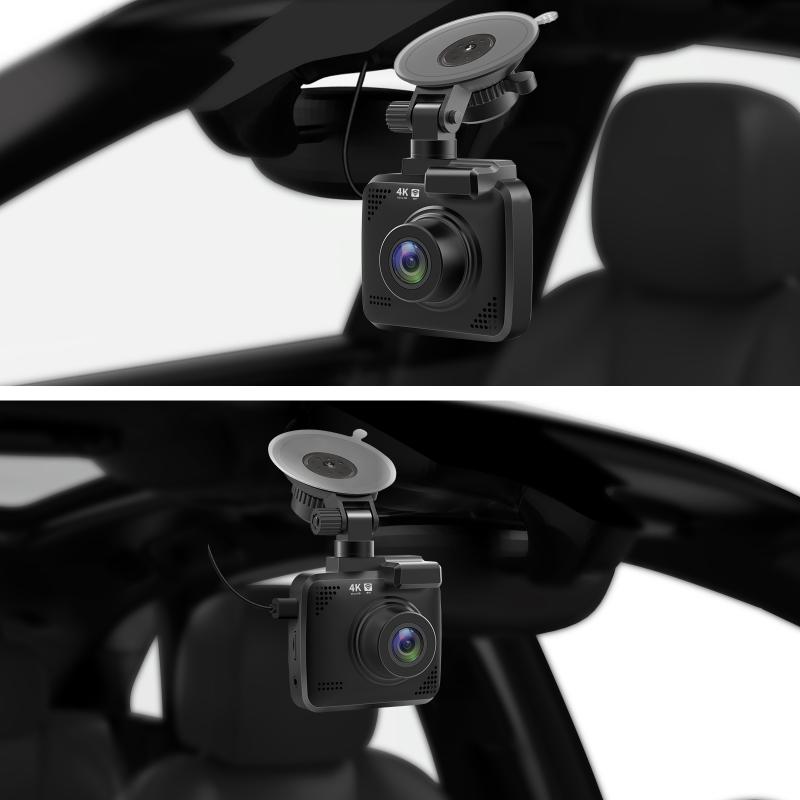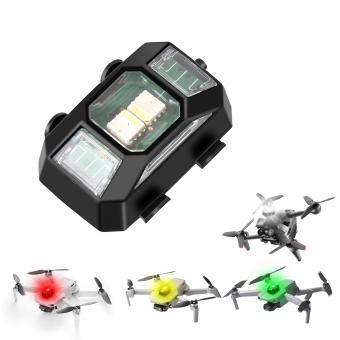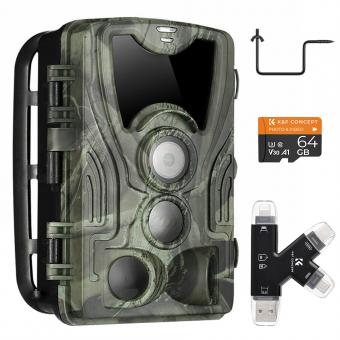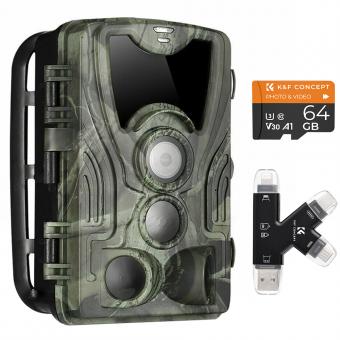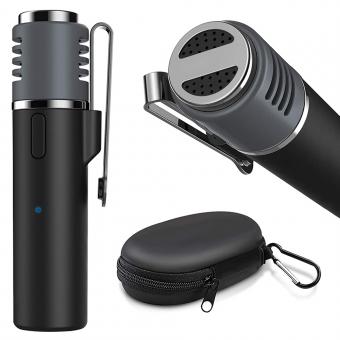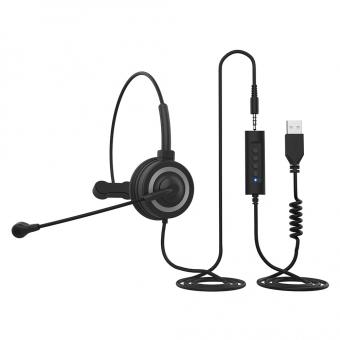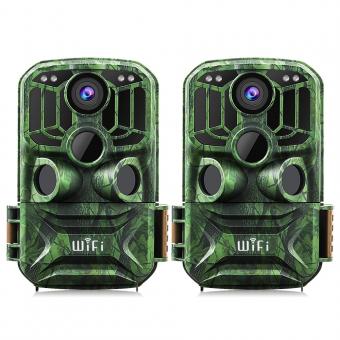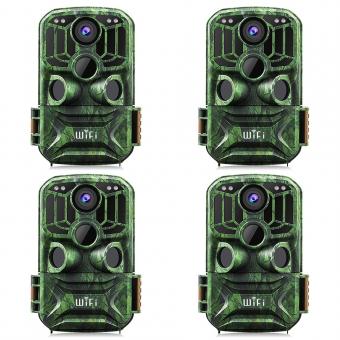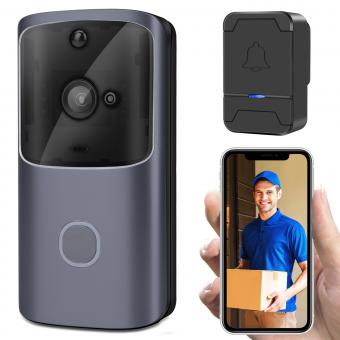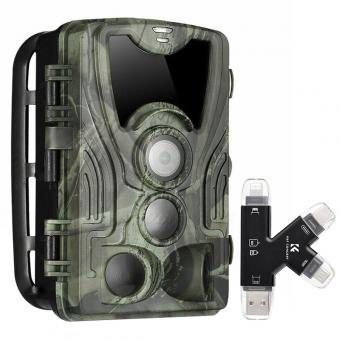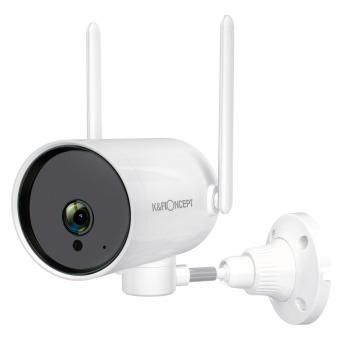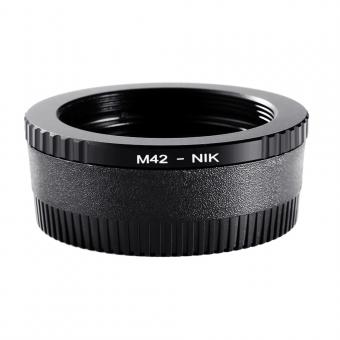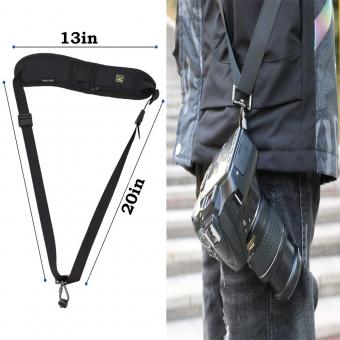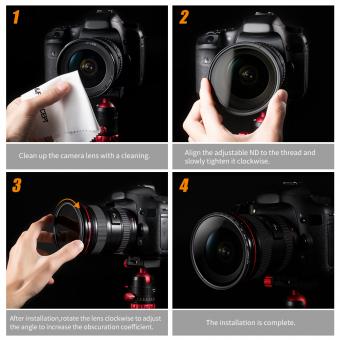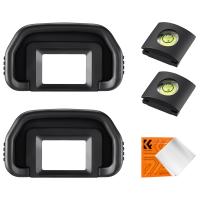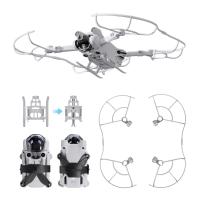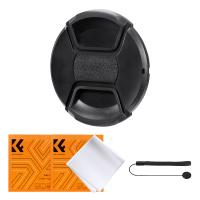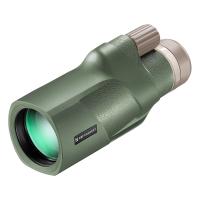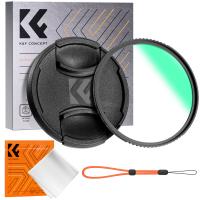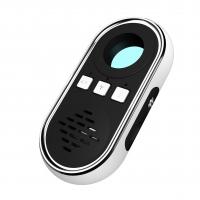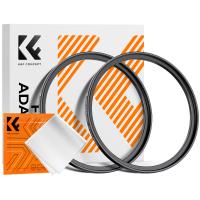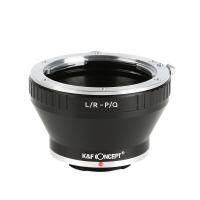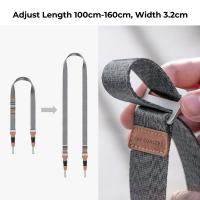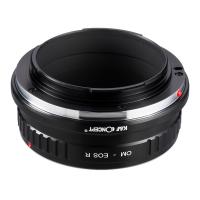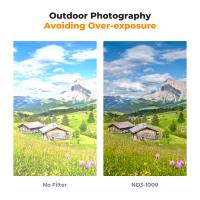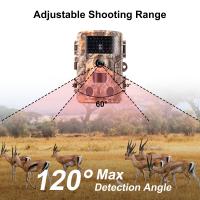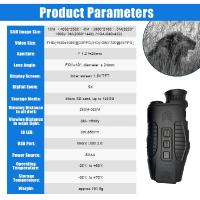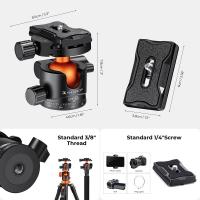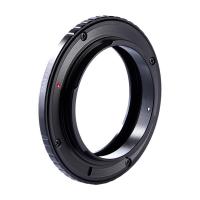How Far Will Wifi Cameras Work ?
The range of WiFi cameras can vary depending on several factors such as the strength of the WiFi signal, the quality of the camera, and any obstructions that may interfere with the signal. In general, most WiFi cameras have a range of around 100-150 feet indoors and up to 300 feet outdoors. However, this range can be extended by using WiFi extenders or by positioning the camera in a location with a stronger signal. It's important to note that the range can also be affected by other wireless devices in the area that may cause interference.
1、 Wireless Range
Wireless Range is the primary factor that determines how far Wi-Fi cameras will work. The range of Wi-Fi cameras varies depending on the type of camera and the environment in which it is used. Generally, Wi-Fi cameras can work up to a range of 300 feet in an open area with no obstructions. However, the range can be significantly reduced if there are walls, floors, or other obstacles in the way.
The latest point of view on Wi-Fi camera range is that it can be extended using Wi-Fi range extenders or mesh networks. Wi-Fi range extenders are devices that amplify the Wi-Fi signal and extend the range of the network. Mesh networks, on the other hand, use multiple access points to create a network that covers a larger area. Both of these technologies can be used to extend the range of Wi-Fi cameras.
Another factor that affects the range of Wi-Fi cameras is the frequency band used by the camera. Wi-Fi cameras can operate on either the 2.4 GHz or 5 GHz frequency band. The 2.4 GHz band has a longer range but is more susceptible to interference from other devices. The 5 GHz band has a shorter range but is less susceptible to interference.
In conclusion, the range of Wi-Fi cameras depends on several factors, including the type of camera, the environment in which it is used, and the frequency band used. However, with the use of Wi-Fi range extenders or mesh networks, the range of Wi-Fi cameras can be extended beyond the typical 300 feet range.
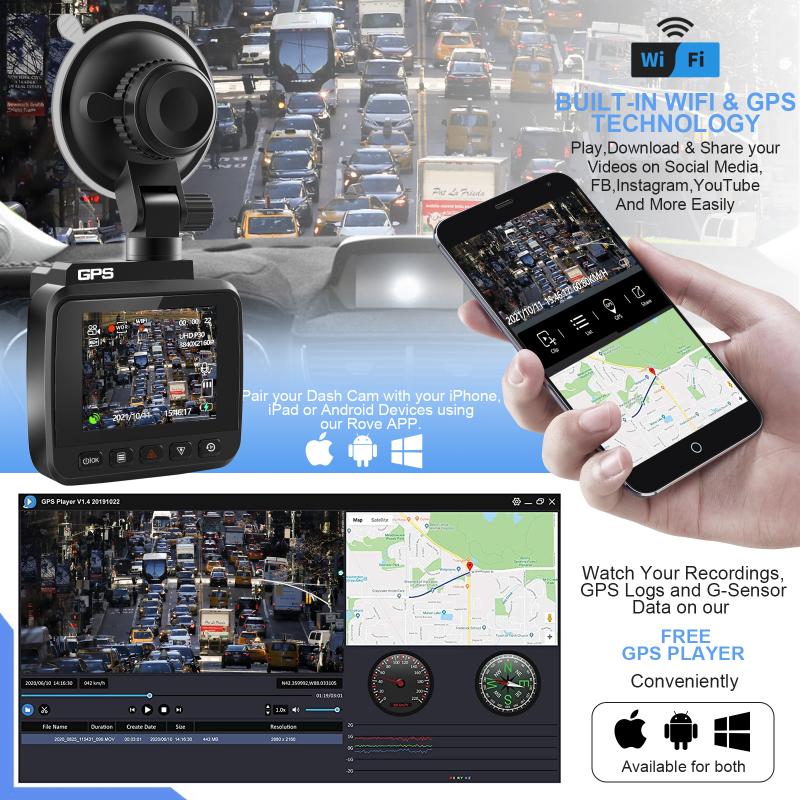
2、 Signal Interference
How far will wifi cameras work?
The range of wifi cameras can vary depending on several factors such as the strength of the wifi signal, the type of camera, and the environment in which it is being used. Generally, most wifi cameras have a range of around 100-150 feet indoors and up to 300 feet outdoors. However, this range can be affected by signal interference.
Signal interference is a common issue that can affect the range and performance of wifi cameras. Interference can be caused by other electronic devices, walls, and other physical barriers that obstruct the wifi signal. This can result in a weaker signal and reduced range for the camera.
To overcome signal interference, it is important to ensure that the wifi signal is strong and stable. This can be achieved by using a high-quality router, positioning the camera in an area with good wifi coverage, and minimizing the number of physical barriers between the camera and the router.
In recent years, advancements in wifi technology have led to the development of cameras with stronger and more reliable wifi signals. Some cameras now use dual-band wifi, which allows them to operate on both the 2.4GHz and 5GHz frequency bands, providing better range and performance.
In conclusion, the range of wifi cameras can vary depending on several factors, including signal interference. However, with the right setup and technology, it is possible to achieve a strong and reliable wifi signal for your camera.
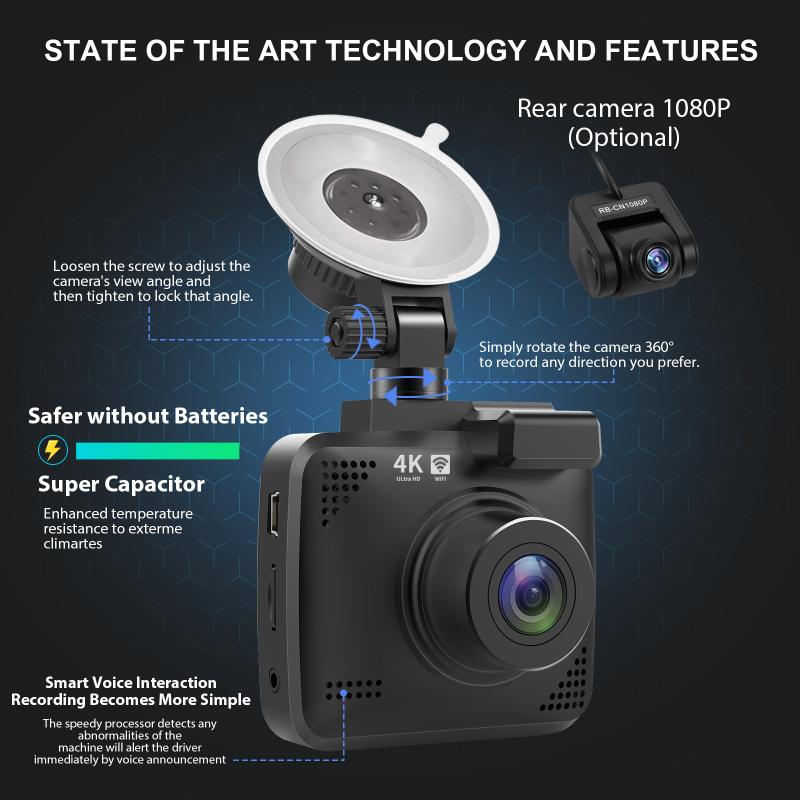
3、 Obstructions
"How far will wifi cameras work?" is a common question among those who are considering installing a wifi camera system. The answer to this question depends on several factors, including the type of camera, the strength of the wifi signal, and any obstructions that may be present.
In general, most wifi cameras have a range of around 100-150 feet indoors and up to 300 feet outdoors. However, this range can be affected by a number of factors, including the strength of the wifi signal and any obstructions that may be present.
Obstructions such as walls, trees, and other objects can significantly reduce the range of a wifi camera. In some cases, the signal may not be able to penetrate through these obstructions at all, resulting in a loss of connectivity.
To overcome this issue, some wifi cameras are designed with stronger antennas or use mesh networking technology to extend the range of the wifi signal. Additionally, some cameras may be able to use a wired connection instead of wifi, which can provide a more reliable and consistent connection.
It's important to note that the range of a wifi camera can also be affected by interference from other devices, such as other wifi networks or electronic devices. As such, it's important to choose a camera system that is designed to work in your specific environment and to take steps to minimize interference as much as possible.
Overall, while the range of wifi cameras can vary depending on a number of factors, it's generally safe to assume a range of around 100-150 feet indoors and up to 300 feet outdoors, with obstructions being a major factor in reducing this range.

4、 Camera Quality
How far will wifi cameras work?
The range of wifi cameras can vary depending on the specific model and the environment in which they are being used. Generally, wifi cameras can transmit data up to a range of 300 feet in an open area without any obstructions. However, the range can be significantly reduced if there are walls, floors, or other obstacles in the way.
It is important to note that the quality of the wifi signal can also affect the range of the camera. If the wifi signal is weak or unstable, the camera may not be able to transmit data over long distances.
In recent years, advancements in technology have led to the development of wifi cameras with longer ranges and stronger signals. Some cameras now use mesh networking technology, which allows them to communicate with each other and extend the range of the network.
Overall, the range of wifi cameras is an important consideration when choosing a camera for your home or business. It is important to choose a camera with a range that is appropriate for your needs and to ensure that the wifi signal is strong and stable in the area where the camera will be used.
Camera Quality:
The quality of a wifi camera is an important factor to consider when choosing a camera for your home or business. The quality of the camera can affect the clarity of the images and videos captured, as well as the overall reliability of the camera.
In recent years, there have been significant advancements in camera technology, leading to the development of high-quality wifi cameras with advanced features such as night vision, motion detection, and two-way audio.
When choosing a wifi camera, it is important to consider the resolution of the camera, as well as the quality of the lens and sensor. Higher resolution cameras will generally produce clearer images and videos, while cameras with high-quality lenses and sensors will be able to capture more detail and produce more accurate colors.
Overall, the quality of a wifi camera is an important consideration when choosing a camera for your home or business. It is important to choose a camera with a high-quality lens and sensor, as well as advanced features that meet your specific needs.
